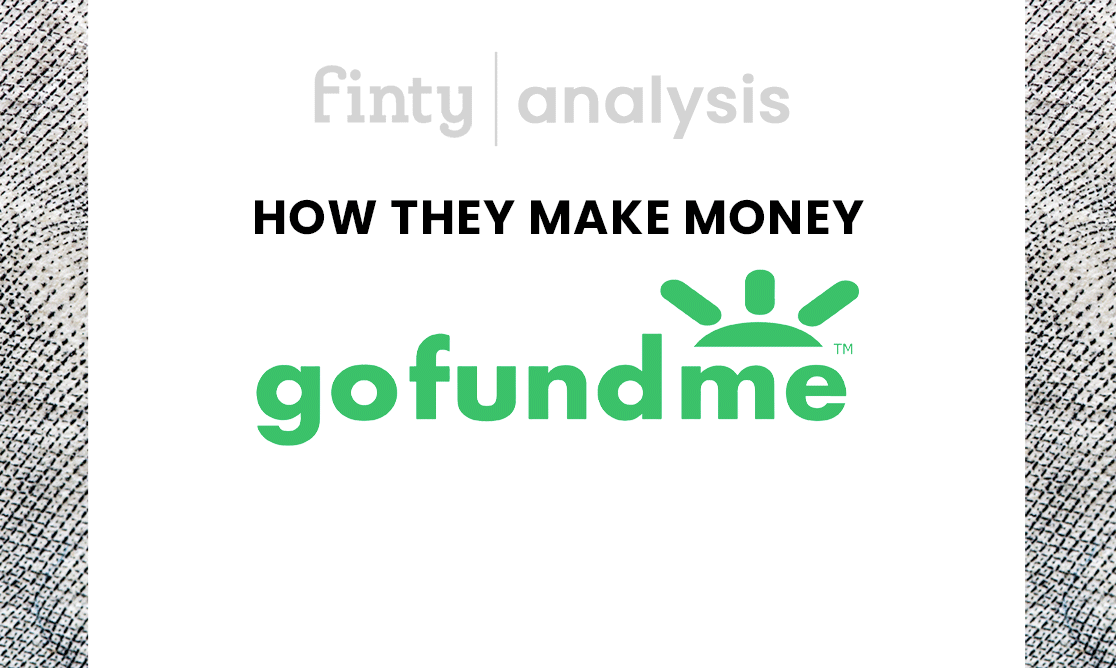GoFundMe makes profits off the campaigns that hosts run on their crowdfunding platform. Donations and collecting fees are how they make their profits. Hence, this business model is helping connect people everywhere to get the funds they need for multiple causes.
When people think of crowdfunding ventures, they instantly think of GoFundMe because it has risen in popularity since it originated in 2008. Over 120 million donors have helped to raise over $9 billion for campaigns on the platform since its inception over a decade ago. The company continues to grow strong as more people receive the funding assistance they need daily from the platform.

Coming up next
What does GoFundMe do?
GoFundMe is a popular crowdfunding website that lets campaign entities (an individual or charity) ask for funds from crowdfunding supporters.
The company operates nationwide and worldwide to connect people from different parts of the world to donate to the causes that they care about most. Crowdfunding supporters can view most recent campaigns posted or look under a category before deciding the cause in which they would like to donate.
How does GoFundMe work?
A campaign entity posts a campaign description, fundraising goal, and a supporting picture or video on the GoFundMe platform to start receiving crowdfunding supporters
Examples of causes that GoFundMe supports include:
- Emergency funds for natural disasters (fire, flood, etc.)
- Medical bills.
- Domestic violence.
- Child custody disputes.
- Educational costs for young children, teens, or college students.
- Funeral expenses.
- Fundraising cause for a late family member or friend who recently died.
Campaign entities can host up to 5 active campaigns on their account at one time, which is great if they have multiple causes in which they need funding.
Once you sign up for the GoFundMe account via Facebook or directly on the website, you can write your fundraising story, set your campaign goal, and publish the campaign to the GoFundMe website.
How GoFundMe makes money
GoFundMe makes money via collecting donations from the GoFundMe Charity Service, charging platform fees to campaign hosts, and charging transaction fees to crowdfunding supporters.
GoFundMe Charity Service
While some crowdfunding supporters like to donate directly to a specific campaign, other people prefer to donate to GoFundMe as a whole. When crowdfunding supporters donate to the GoFundMe Charity Service, the company can distribute the funds accordingly based on need. This is the way that GoFundMe remains so profitable because there are no fees to donate to this service unlike the fees associated with donating directly to a GoFundMe campaign.
Platform fees charged to campaign hosts
Depending on where you are located throughout the nation or the world, you may have to pay a platform fee as a campaign host. While there is no platform fee in the United States to start a GoFundMe campaign, there is a 5% platform fee that campaign hosts in Luxembourg must pay.
Transaction fees charged to crowdfunding supporters
However, there are transaction fees that American crowdfunding supporters have to pay. The normal transaction fee is 2.9% of the total donation plus an extra 30 cents to expedite a debit or credit card transaction on the platform.
For example, if you are donating $30 to a GoFundMe campaign, you would have to pay 87 cents to cover the 2.9% transaction fee plus another 30 cents. This means that the actual donation is not $30, but $28.83.
Future growth engine
While the GoFundMe Charity Service has helped the company to make money in the past, it is ceasing fundraising on this end in September 2021.
This means that the campaigns on the platform, which charges transaction fees for every crowdfunding supporter, will take precedence over the charity service that did not charge fees at all when people donated to it. Hence, the company will still grow in profitability from the transaction fees collected when crowdfunding supporters donate to different campaigns.
Competitors
Fundly, GiveSendGo, and Kickstarter are a few of GoFundMe’s competitors, but there are many more.
Fundly is another crowdfunding platform. However, they are different from GoFundMe in that they support campaigns hosted via organizations and individuals while GoFundMe supports more campaigns hosted via individuals and charities. This company charges a 4.9% platform fee on every transaction. They have the same transaction fees as GoFundMe.
In early 2022, GoFundMe made the decision to withhold funds donated to a campaign raising funds for Canadian truckers protesting Covid mandates. This drove hundreds of thousands of users to GiveSendGo and damaged trust in the platform, particularly on the political right.
While Kickstarter is a crowdfunding platform, it has a specialized niche for supporting people who are engaged in creative projects such as videography, painting, photography, theatre, music, art, film, video game design, comic book publishing, and more. Kickstarter charges a 5% fee to the host if any funds are collected as well as 3% to 5% per transaction.

